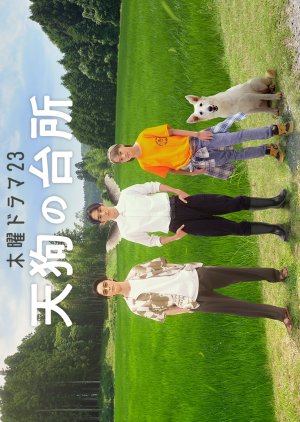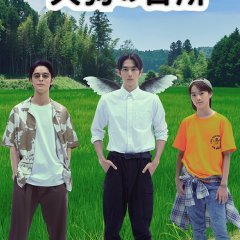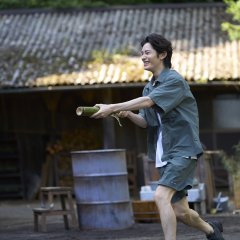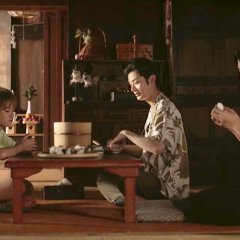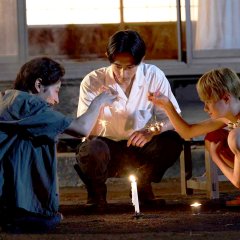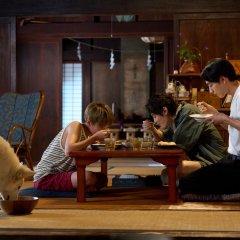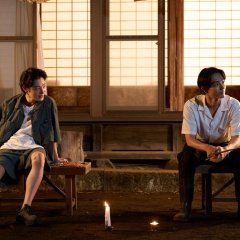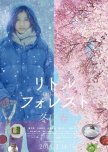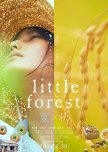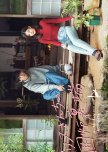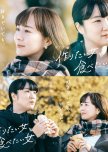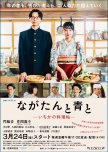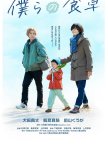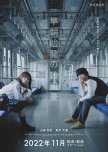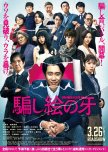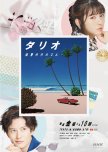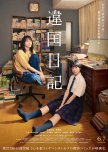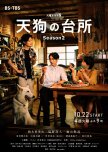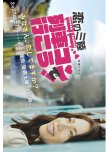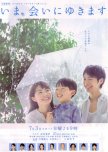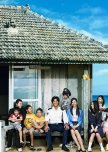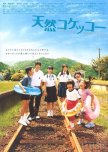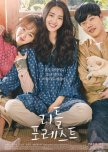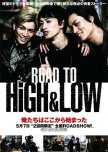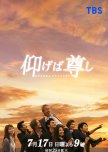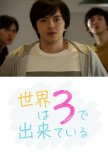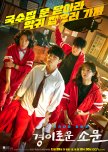- Nederlands
- Español
- English
- Português (Brasil)
- Oorspronkelijke titel: 天狗の台所
- Ook gekend als: Tengu's Kitchen
- Scenarioschrijver: Amano Chihiro, Yamada Yoshitatsu, Sode Yukiko, Kumamoto Hiromu, Nara Miharu
- Regisseur: Kawai Hayato, Hayashida Hirokawa, Shimoda Hikota, Nagashima Sho
- Genres: Eten, Fantasie
Cast & Credits
- Komagine KiitaIzuna MotoiHoofdrol
- Koshiyama KeitatsuIzuna OnHoofdrol
- Shiono AkihisaAtago YuiHoofdrol
- Asaji YokoIzuna Shikiko [Motoi and On's grandmother]Bijrol
- Harada TaizoEllis Wilson [Motoi and On's father]Bijrol
- Watanabe MakikoIzuna Kazuno / Kazuno Wilson [Motoi and On's mother]Bijrol
beoordelingen

Deze recentie kan spoilers bevatten
So much peace my anxiety is cured
This was a very nice, peaceful and refreshing ride. It's very slow and there's not much happening, but it's far from boring.Here are stuff I really enjoyed:
-On's change of character. In the manga, he is a very cheerful kid, who's excited about everything from the beginning and he's very expressive, so the exact opposite of On in the drama. I like this version better, I think they portrayed well a teenager who's lived in a big city his whole life, without making him a spoiled brat. They kept his curious and thoughtful personality but it's more subtle and realistic.
-Their relationship with their parents is so refreshing. I was expecting them to be the tipical strict parents who'd try to force their kids to live according to the plan they had for them and then realize at the end what they truly need for their happiness, but instead they were supportive from the beginning and amazingly gentle. The scene where they share a meal all together and when the mom comforts On about his choice of life almost made me cry.
-The food, obviously. it's not the first time I watch a japanese drama where food is such an important topic, but there's something about this one that not only made me hungry, but it also made me want to cook for my friends. It makes you want to take your time cooking and really enjoy the making process.
-Yui's presence is much more important in the drama than in the manga, and I think it's such a good thing. You can really see how him being there helps On throughout his journey of learning.
Room for improvement:
-The whole speaking to animals thing. I'm not sure because I watched it in raw and I'm not fluent in japanese yet so I might have missed something, but I think they said that as a tengu he could speak to animals, yet we only hear the dog speaking. I would have loved to see other animals step into the picture, even if it's just a little. Also, There were no real conversations with Mugi. Most of the time, he's just making small comments that don't have any impact on the characters or the scenario, and I think it would have been so nice for him and On or Motoi to have some real conversations. It would have deepened the meaning of being a tengu, for us as the audience and for On.
-Motoi's lack of reaction at the end. Although he is has a calm personality and tries to keep a poker face all the time, we can see clearly how On's presence's moves him emotionally. So, it would have been great at the end to see how really touched he is by On's departure. It could have been a nice final touch to the connection they built since he showed gradually more of his vulnerable side as the show went on.
Overall, it was super sweet and I can't wait for season two to air!
Vond je deze recentie nuttig?

Deze recentie kan spoilers bevatten
Return to Nature: A Gem Uncovered in Japanese Countryside Drama
I was initially hesitant to dive into this Japanese drama, primarily due to my lack of interest in Tengu lore. Despite being a fan of Shiono Akihisa’s performances in BL, I just couldn’t find the motivation to start watching.However, during the Thanksgiving holiday, I gave in and watched the first three episodes, only to realize I was on the brink of missing out on something truly special. This show is more than just a drama; it’s an ode to the beauty of Japan’s rural forests and a manifestation of the modern longing for a simpler, rural life.
The story revolves around On, born and raised in North America, who at 14 learns he is a descendant of the Tengu. Tradition dictates he must spend a year in seclusion in the Japanese countryside. This trip also marks On’s first encounter with his brother, Motoi, who had returned to Japan before On’s birth.
Initially reluctant to leave his comfortable modern life, On discovers in the Japanese countryside that he can understand the language of dogs, an ability hinted at by his name. It’s a Tengu lineage trait that all descendants can communicate with animals at 14, but this fades away as they turn 15. However, Motoi is an exception; not only does he retain his animal communication skills into adulthood, but he also grows wings.
Motoi’s love for rural life, his passion for food, and his back-to-nature approach deeply influence On, prompting reflection in those of us entrenched in modern urban civilization.
This drama beautifully portrays the contrast between modernity and traditional rural life, interspersed with mystical elements of Tengu folklore. It’s a heartwarming story about family, self-discovery, and the universal search for a connection to our roots. A true gem that speaks to the soul, urging us to find beauty and peace in the simplicity of nature.
Vond je deze recentie nuttig?

